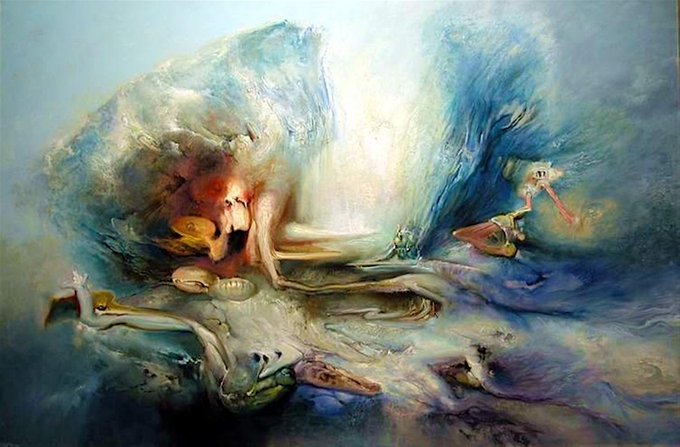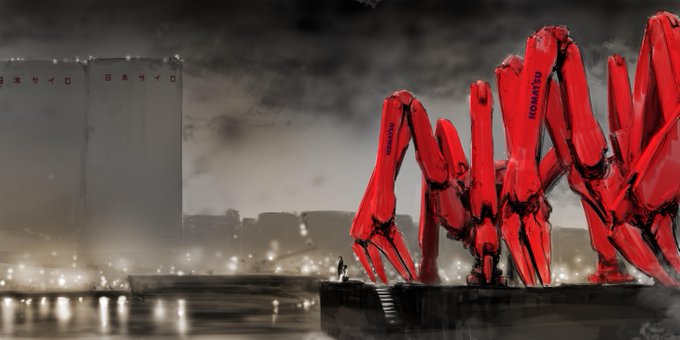"Parsifal" by Jean Delville (Belgian, 1867-1953). Delville was a Neo Platonist.
Neoplatonic belief holds that the material realm has to be transcended and that a higher unity exists. The story of Parsifal concerns the quest for the Holy Grail by an Arthurian knight.
"The Body of the Dead Christ" by Hans Holbein (1497-1543) is an enigma in the History of religious art. It's unsparing, unromantic depiction of the mutilated body of Christ led Dostoevsky to write in 'The Idiot':"Why, some people may lose their faith looking at that picture!"
From a distance the paintings of James Gleeson look like religious epics. Look more closely and you'll see those aren't human forms but surreal and monstrous entities.
Gleeson (1915-2008) was Australia's foremost surrealist.
Original concept artwork by Peter Konig created for the sci-fi film Arrival (2016, directed by Denis Villeneuve).
This ethereal Alien design was rejected in favour of The Heptapods we now see in the movie.
Stages in the development of the Alien window in the film ARRIVAL (2016, Denis Villeneuve).
They eventually settled on the design that most resembled the shape of a cinema screen.
Concept Art by Meinhart Hansen
Toshiko Okanoue (1928 - ) is a Japanese avant-garde artist best known for her Surrealist photo collages.
Many thanks to @ClockworkCosmos for the shared find.
"Neuromancer" by William Gibson. Many have tried to make it into a movie. Here is some of the Concept Art For Vincenzo Natali's unmade version.
The Year 2000, as imagined in 1910.
- Machines that build houses.
- Students wearing headphones-
- Ships that fly
- Battery-powered roller skates
Well, they got 3 out of 4 right!
Thx to Acidcow website
You know that big tech scientists need regulation by non-scientists when they invent a:
"solar-powered remote-controlled cyborg cockroach "



















